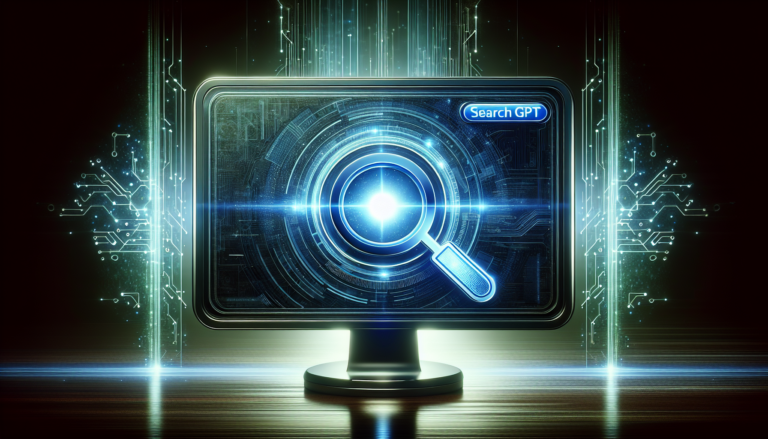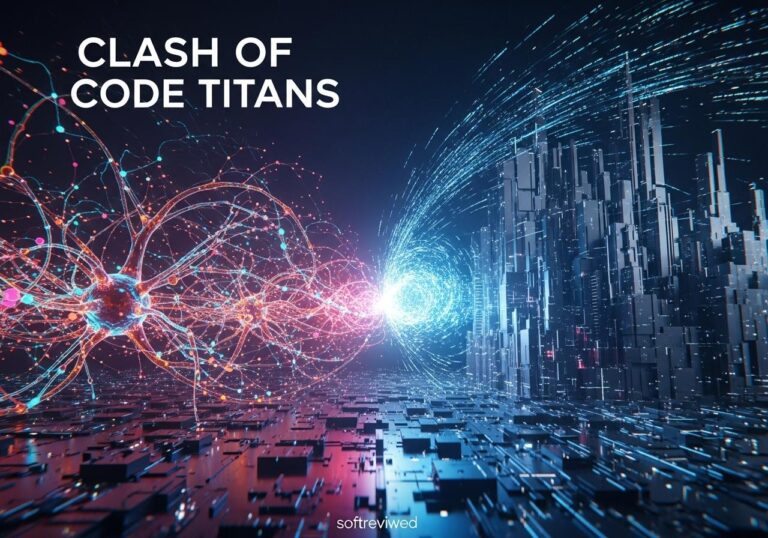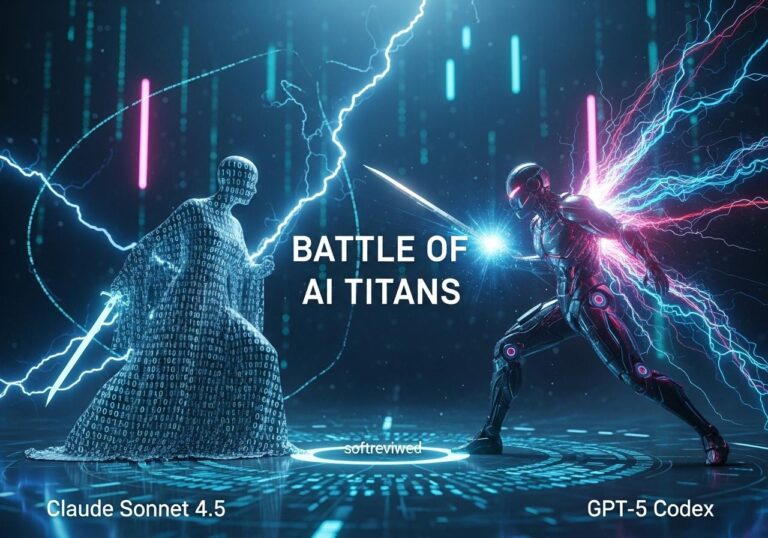🔍 AI Revolutionizes Search
OpenAI’s collaboration with Microsoft is transforming the search landscape, bringing new challenges and opportunities for marketers.
🤖 AI Redefines Search
OpenAI and Microsoft’s partnership revolutionizes search dynamics, emphasizing personalization and enhanced user experience.
📊 Marketing Shifts Expected
Marketers need to adapt SEO and content strategies for AI-driven search engines, shifting the competitive landscape.
📈 Analytical Opportunities Expand
AI-powered analytics tools provide deeper insights into user behaviors, enhancing targeted marketing efforts.
🥊 Significant Competition Emerges
OpenAI’s entry into the search engine market challenges Google’s dominance, reshaping the search industry and marketing strategies.
🌟 Revolutionary User Experience
AI search engines offer more tailored results and enhanced user experiences, potentially altering how users interact with search engines and access information.
💼 New Business Model
AI search engines may require new business models, such as using citations and real-time information, and leveraging partnerships like OpenAI’s with Microsoft.
In a bold move that’s set to shake up the search engine landscape, OpenAI has unveiled SearchGPT, its cutting-edge AI-powered search engine. This innovative platform, leveraging the advanced GPT-4 family of models, promises to redefine how we access and interact with information online. But what exactly is SearchGPT, and how does it stand to change the way we search the web?
The Dawn of a New Search Era
On July 26, 2024, OpenAI made waves in the tech world with the announcement of SearchGPT. This ambitious project aims to challenge Google’s long-standing dominance in the search market by offering a fresh approach to information retrieval and presentation.
SearchGPT isn’t just another search engine; it’s a sophisticated AI-driven platform that claims to provide real-time access to information from across the internet. By harnessing the power of OpenAI’s state-of-the-art language models, SearchGPT promises to deliver more nuanced and context-aware search results than traditional keyword-based search engines.
Key Features of SearchGPT
Real-Time Information Access
One of the standout features of SearchGPT is its ability to provide up-to-the-minute information. Unlike traditional search engines that rely on indexed web pages, SearchGPT can dynamically generate responses based on the most current data available.
Enhanced User Experience
SearchGPT aims to organize search results in a more user-friendly manner, potentially revolutionizing the way we interact with search engines. The platform’s AI-powered interface is designed to understand complex queries and provide more relevant and comprehensive answers.
Promoting Original Sources
In an era where content attribution is increasingly important, SearchGPT takes a unique approach. The platform is designed to prominently cite and link to original sources, potentially creating a more equitable ecosystem for content creators and publishers.
An OpenAI spokesperson stated, “SearchGPT is designed to help users connect with publishers by prominently citing and linking to them in searches.”
Ad-Free Experience
At launch, SearchGPT is offering an ad-free experience to its users. This clean, distraction-free interface could be a significant draw for users tired of ad-cluttered search results pages.
The Initial Rollout
OpenAI is taking a measured approach to the launch of SearchGPT. Initially, access to the platform is limited to 10,000 test users. This controlled rollout allows OpenAI to gather valuable feedback and fine-tune the system before a wider release.
The Cost of Innovation

While SearchGPT is free for users at launch, the development and maintenance of such an advanced AI system come with significant costs. OpenAI is estimated to spend around $7 billion on AI training and inference in 2024 alone, largely due to the high usage of ChatGPT.
This substantial investment raises questions about the long-term sustainability of offering SearchGPT as a free service. It will be interesting to see how OpenAI balances the costs of running the platform with their commitment to providing free access.
SearchGPT vs. Google: A New Competitive Landscape
The launch of SearchGPT marks a significant challenge to Google’s dominance in the search market. Let’s compare some key aspects of these two search giants:
| Feature | SearchGPT | |
|---|---|---|
| Search Technology | AI-powered, using GPT-4 models | Combination of algorithms and AI |
| Result Presentation | AI-generated responses with source citations | Ranked list of web pages |
| Ad Model | Currently ad-free | Ad-supported |
| Real-time Information | Claims to provide up-to-the-minute data | Updates index regularly, but not in real-time |
| Source Attribution | Prominently cites and links to sources | Provides links to sources in search results |
The Potential Impact on the Search Industry
The introduction of SearchGPT could have far-reaching implications for the search industry:
Shift in User Expectations: As users become accustomed to AI-powered search results, there may be a growing demand for more intelligent and context-aware search experiences.
Pressure on Existing Players: Established search engines may need to innovate rapidly to keep up with the capabilities of AI-powered alternatives. This pressure to innovate intensifies as AI models provide more intuitive, personalized, and accurate results, potentially reshaping how users interact with search platforms. Moreover, events like the Reddit search engine blockade, where certain platforms restricted access to content by external search engines, highlight the challenges of maintaining comprehensive search capabilities. Established players must strategize not only to enhance their AI technologies but also to navigate these evolving content access limitations.
New Opportunities for Publishers: SearchGPT’s emphasis on citing and linking to original sources could create new opportunities for content creators to gain visibility and traffic.
Evolution of SEO Practices: The rise of AI-powered search engines may necessitate a shift in SEO strategies, focusing more on providing high-quality, authoritative content rather than keyword optimization.
Privacy and Data Concerns: As AI-powered search engines become more prevalent, there may be increased scrutiny on how user data is collected, used, and protected.
Challenges and Controversies
Despite its potential, SearchGPT faces several challenges and potential controversies:
Accuracy and Reliability
Ensuring the accuracy of AI-generated search results and the reliability of source citations will be crucial for building and maintaining user trust.
Scalability and Cost
The high costs associated with running an AI-powered search engine could pose challenges for OpenAI’s financial sustainability, especially if the service remains free and ad-free.
Market Saturation
With the increasing number of AI-powered search engines entering the market, there’s a risk of saturation, making it difficult for any single platform to dominate.
Balancing User Experience and Publisher Interests
Achieving the right balance between providing seamless access to information and promoting original sources will be an ongoing challenge for SearchGPT.
The Future of SearchGPT
Looking ahead, OpenAI has ambitious plans for SearchGPT:
Integration with ChatGPT
OpenAI plans to integrate SearchGPT into ChatGPT, potentially creating a powerful unified platform for information retrieval and AI-assisted task completion.
Expanding Access
As the platform matures, OpenAI is likely to expand access beyond the initial 10,000 test users, potentially opening up SearchGPT to a global audience.
Continuous Improvement
Leveraging user feedback and advances in AI technology, we can expect SearchGPT to undergo continuous refinement and improvement.
What This Means for Users
For internet users, the advent of SearchGPT and similar AI-powered search engines could bring several benefits:
- More intuitive and natural search experiences
- Access to more up-to-date and comprehensive information
- Reduced time spent sifting through irrelevant search results
- Easier discovery of authoritative and original sources
However, users should also be aware of potential drawbacks:
- The need to adapt to new search interfaces and paradigms
- Potential concerns about data privacy and AI bias
- The importance of critical thinking when evaluating AI-generated responses
The Broader Implications for AI and Technology
The launch of SearchGPT is more than just a new product release; it’s a significant milestone in the ongoing AI revolution. It demonstrates the growing capability of AI systems to handle complex, open-ended tasks that were once the exclusive domain of human intelligence.
This development could accelerate the adoption of AI technologies across various sectors, from education and healthcare to business and governance. It also underscores the need for ongoing discussions about the ethical implications of AI and the importance of developing these technologies responsibly.
Preparing for an AI-Powered Future
As AI-powered search engines like SearchGPT become more prevalent, individuals and organizations may need to adapt:
For individuals: Developing digital literacy skills to effectively use and critically evaluate AI-powered tools will be crucial.
For businesses: Adapting marketing and SEO strategies to align with AI-driven search paradigms could become essential for maintaining online visibility.
For educators: Incorporating AI literacy into curricula and teaching students how to effectively leverage AI tools while maintaining critical thinking skills will be important.
- For policymakers: Developing frameworks to ensure the responsible development and use of AI technologies in public-facing applications like search engines will be necessary.
How Does Facebook’s Meta-Search Engine Compare to OpenAI’s SearchGPT in Revolutionizing Information Access?
Facebook’s Meta-Search Engine is reshaping how users access information by integrating social interactions and personalized content. In contrast, OpenAI’s SearchGPT leverages advanced AI to deliver precise results. Both platforms offer unique capabilities, but exploring facebook’s innovative search engine features reveals new dimensions of social engagement and information discovery.
Conclusion: A New Chapter in Search Technology
The launch of SearchGPT marks the beginning of a new era in search technology. While it’s too early to predict whether it will dethrone Google or revolutionize the way we access information online, it’s clear that AI-powered search engines are here to stay.
As users, we stand to benefit from more intelligent, context-aware search experiences. However, we must also remain vigilant about the potential challenges and ethical considerations that come with these advanced AI systems.
Ultimately, the success of SearchGPT and similar platforms will depend on their ability to deliver genuine value to users while addressing concerns about accuracy, privacy, and the fair treatment of content creators. As this technology continues to evolve, it promises to reshape our relationship with information in the digital age.
Stay informed about these developments, and don’t hesitate to try out new search technologies as they become available. Your feedback and usage patterns will play a crucial role in shaping the future of search.
OpenAI’s SearchGPT Features and Integration
This chart illustrates the key features and integration plans for OpenAI’s SearchGPT, highlighting its capabilities and partnerships.







